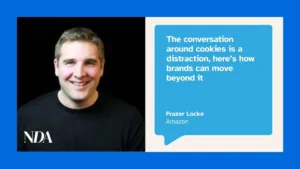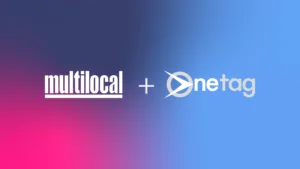By Owain Wilson, Head of Data Practice, MediaCom
Remember that all too familiar ad you saw this morning? That new iPhone that’s on your wish list? You have data collection and insights to thank for that. However, is this an invasion of privacy or the cost of living in a digital world?
Historically, rules and regulations surrounding data were very loose, but with changes in consumer habits, it became apparent that new stricter rules were needed to protect consumers.
Enter the General Data Protection Regulation (GDPR), a strict set of rules dictating the way data is gathered and used. Though at first the GDPR appeared to be an obstacle for advertisers and marketers with pre-existing and rigid data strategies, it has and will continue to dramatically evolve the relationship between consumers and marketers. It’s not only transforming consumers’ privacy when it comes to managing their data, but also gives brands a more transparent way to capture first-party data and create personalised insights all whilst being significantly less invasive.
With the increased use of technology this was a measure that didn’t come as a surprise, but before the GDPR no consumer truly knew the amount or the detail of data that was being captured by organisations. But now we do. And there are consequences for those organisations that don’t follow suit…
A new dawn of privacy-first marketing
Fast forward to the GDPR’s fourth anniversary and there’s an ongoing shift taking place in how brands use data to reach their target market. Google’s introduction of its Privacy Sandbox is one example of how key players within the industry are seeking to capture consumer habits in more ethical and sustainable manners. It’s easy to fall into a trap of trying to collect every bit of data but brands should ask the question: “do I really need this and how will I use it to benefit my business or my customers?” Trust is the key to harnessing and using data in the modern day and this must be at the forefront of any business’ data strategy.
The most common way for personal data to be gathered digitally is through the use of cookies and the GDPR also sets out a set of rules for the use of them. This includes that consent must be obtained before anything happens with your cookies and we see this day-to-day on websites where you’re bombarded with consent messages before you can even access anything. Ultimately, this consent and transparency in how your data is used places more trust in publishers and brands than ever before and shows the real value of the GDPR that was at first heavily questioned.
And with the phasing out of third-party cookies, more impacts are being felt in the way brands and agencies identify new targets and measure audiences. A privacy-first marketing industry is on the horizon. This does mean there will be significant change in the way data is obtained, impacting brand strategies while creating new and exciting ways to capture specific data.
Strengthening relationships with consumers
The age of mass personal data collection seems to have thankfully passed, and its replacement will be a more specified approach that processes a considerably smaller amount of information. Therefore, a relevant, targeted approach is now the best option. This in turn can strengthen brands relationships with consumers.
45% of Europeans still worry about their privacy, even post-GDPR. There is still a long way to go before consumers can have 100% confidence that brands and publishers are using their data in ways consumers are happy with. This is the big question the industry is in the process of trying to find a resolution to at present, but the brands that embrace a transparent and personal approach will thrive through the lasting relationships they build with audiences.
Aside from initial disruption to the industry, it is encouraging to see that the GDPR has transformed advertising strategies for advertisers and consumers alike and claims an array of benefits for brands. Those that embrace the new ways of collecting data with the help of the GDPR will build a greater relationship with consumers through trust and relevancy which in turn will promote and sustain growth. It has meant that brands are always seeking trusted vendors, strengthening long term relationships, and making data more accessible and visible to consumers.
We are seeing a long overdue reset and the media & advertising industry will be all the better for it.








